Documenting ABC Media Watch bias on population issues - Letter from John Coulter
 Subsequent to Dick Smith's complaints to the ABC about bias towards the growth lobby on the subject of population, on 11 September 2017, Paul Barry, of ABC Media Watch, launched what many thought was a personal attack on Smith, in lieu of dealing fairly with the vital issues at hand. Dr John Coulter (former Senator and leader of the Democrats) wrote the following complaint to Media Watch, where he protests at the treatment of Dick Smith by Media Watch and documents a number of instances of pro-population-growth bias in the ABC. You can also read some a few comments published by Media Watch on this issue here: http://www.abc.net.au/mediawatch/transcripts/s4732374.htm.
Subsequent to Dick Smith's complaints to the ABC about bias towards the growth lobby on the subject of population, on 11 September 2017, Paul Barry, of ABC Media Watch, launched what many thought was a personal attack on Smith, in lieu of dealing fairly with the vital issues at hand. Dr John Coulter (former Senator and leader of the Democrats) wrote the following complaint to Media Watch, where he protests at the treatment of Dick Smith by Media Watch and documents a number of instances of pro-population-growth bias in the ABC. You can also read some a few comments published by Media Watch on this issue here: http://www.abc.net.au/mediawatch/transcripts/s4732374.htm.
Dear Media Watch,
[11 September 2017]
I was quite shocked by your program last evening re coverage of Dick Smith’s attempts to get ‘growth’ both population and economic on to the ABC’s agenda. Unlike your usual, more dispassionate reports you seemed to be more intent on disparaging Dick Smith rather than dealing with the importance of his claims as to the overarching importance of both aspects of growth as the drivers of our unsustainable trajectory and the fact, yes fact, that the ABC has excluded these things from its main-stream news items.
I wrote to you about this back in March and received an acknowledgement but nothing more. Below is some of the content of that letter.
But to bring this right up to date, just this morning there was extensive coverage of the problems with the supply of electricity into the mid-term future. But not a single mention of the fact that Federal Government policy is to add an additional one million people, all needing electricity every five years into the indefinite future.
Is this really an irrelevant ‘fact’? Is it not an important ‘fact’ to bring into this discussion? In every other sphere of public discussion both supply and demand are considered the basic elements of economics 101. Yet in the provision of electricity services, affordable housing, education, hospitals and medical services, roads and transport, etc etc the demand side caused by deliberate population growth through immigration is excluded by the ABC.
On the economic growth side the ABC repeatedly provides data on the growth of GDP but with few exceptions fails to provide the figures on per capita GDP growth which is much much smaller because of the very high level of immigration. Nor does it mention that included in the GDP figures are large amounts spent on attempts to keep infrastructure up to providing for the expanding population. None of these costs, which are added to GDP, improve the lot of existing Australians. It’s not surprising that very many Australians feel they are going backwards – because they are. Or that the Productivity Commission found only marginal economic benefits from immigration and much of that benefit going to the recently arrived.
None of this is to indicate racism. This is purely to do with numbers and how best to build an environmentally sustainable Australia in an environmentally sustainable world. Note that the Global Footprint Network has recently released its figures which show that Australians have the highest per capita environmental impact in the world. We would need 5.2 Earths if all were to live like Australians. Yet all our political parties seek to increase both population and per capita consumption. And the ABC uses language in its coverage of these things as, for example, South Australia ‘falling behind.
These footprint figures link Australians to the rest of the world and how best we can assist other nations to find their own unique path to a sustainable future. With 80+ million refugees and displaced persons in the world and with fertility rates in many middle-east and sub-Saharan Africa very high it seems self-evident that Australia could do much more by way of foreign aid, especially slanting that aid toward family planning, contraception and raising the standard of health of women. Yet Australia has cut its foreign aid program and the ABC has not picked up on the central role of foreign aid to assist women in the ways mentioned. Indeed a number of programs from Sally Sara and others have ignored the central role of high fertility in worsening the plight of people from Yemen to South Sudan. I am associated with an organisation called Population Media Centre which operates in over 50 countries and which concentrates specifically on raising the health of women. It uses long running radio soapies to raise awareness. I have several times urged programs such as Foreign Correspondent and Sally Sara specifically to make a program about the exciting and successful work of PMC in Ethiopia for example, but to no avail.
Below is some or all of the letter I wrote to you back in March:
9th March [2017] letter to media watch.
For example, last week in Saturday Extra a long interview regarding the plight of refugees in Sudan failed to even mention population growth as a driver of this and similar distressing situations across much of the world, especially the middle east and throughout Africa. Population growth is clearly going to make the present look like a picnic compared with the inevitable future. By not dealing with population and implying that the real need is for short-term aid rather than family planning, contraception availability, education and a rise in the standard of living and equality of women, such programs will make the future worse than it needs to be. In short, such programs will increase the totality of human suffering.
See the 2 minute video from the UN on the plight across the Sahel at http://oasisinitiative.berkeley.edu/news/ [Embedded below.]
This item on Saturday Extra was not isolated. A week earlier on a different program a similar account from another refugee camp in Africa failed to mention population growth as a factor.
12th November 2016, "What keeps me at wake at night."
This program on water began with the statement that water was a limited resource but that demand was increasing. It identified the limits on water supply as underpinning several of the areas in turmoil in the middle east, especially Syria. It touched on the appalling conditions in Yemen, specifically dealing with declining water per capita but again failed to mention the very high fertility rate in Yemen or any of the other middle east countries which appear on the nightly ABC TV news showing very large numbers of children but with never a comment on the size of the population or the fact that the high fertility rate will exacerbate the water shortage per capita. It is not a water shortage but a longage of people. This is the point that the ABC repeatedly misses. The standard analysis by ABC journalists as to what ails many of the middle-east countries is presented in political and religious conflict terms; never does it point to the underlying drivers: too many people trying to derive resources, including water and food, from a finite environment.
Last evening (27th March) on Lateline Jeremy Fernandez interviewed HRH Haya Bint al Hussein of Jordan who is in Australia in her role as assisting international refugees and speaking with Australia's Foreign Minister. Princess Haya made the remarkable claim that the world produces three times as much food as needed. This went unchallenged. She was not asked a single question about the very high fertility rates in middle eastern countries and how this was impacting (what is usually called the shortage of food and water but is really) the longage of people. Note that almost every news item that covers the middle eastern refugee situation speaks of families of 4, 6 and 8 children and every video clip shows a preponderance of children. There is no shortage of evidence. She was not asked a single question on family planning or use of contraception.
This morning (28th March) Fran Kelly also interviewed the princess and again there was a complete absence of any questions about the very high fertility rates in Middle east countries, what her charities might be doing about this, about Trump's change to foreign aid specifically with respect to family planning clinics providing abortion advice or services and whether she would be asking the Australian Foreign Minister for additional foreign aid to counter this deficit. Women's standing in Jordan was touched on but only with respect to the number of women in significant positions in government and society.
28th March ABC RN Drive with Patricia Karvelas.
Interview with three interviewees on housing affordability. First comment by first interviewee was that it was a matter of both supply and demand and there was a gap. Karvelas did not pick up on the demand side throughout the interview. She identified ‘the elephant in the room’ as negative gearing but failed to identify that 60% of demand is being fed by high immigration and that many have identified this as a very significant factor in housing affordability. The first interviewer mentioned immigration in his closing remarks but no one picked up on this remark of this factor.
24th March. Stan Grant interviewed Dick Smith in a setting of a Sydney market on the evening Link program on ABC TV.
This part of the program was said to be about population and Australia’s immigration intake. However the context set by Stan Grant was that the size of a sustainable population can be determined by public opinion and Stan kept asking leading questions of those in the market suggesting that any reduction in immigration would be detrimental to their business. Stan could not be more wrong in his assumption. Finding a sustainable population size for Australia is no more a matter of public opinion than finding the amount of greenhouse gas emissions that can be allowed without invoking climate change, or the number of sheep that can be kept permanently in a paddock without overgrazing. These are all matters in which there is good and essential science underpinning consideration of these matters but Stan consistently talked over Dick and did not allow him to advance any of them.
31st March. The Drum. A segment on population that contained no person or mention of environmental sustainability in relation to population growth. Thus, claims that we need population growth, that it was inevitable, that growth was wonderful, that it benefited the economy, that government could do nothing to limit population growth, that Japan was shrinking and we don’t want to go down that path were all left to stand as truth whereas every single on of these claims can be refuted with supported evidence. The selection of such a panel without an alternative voice shows bias.
6th , 7th , 10th April. Three sessions on RN on almost successive days dealing with aspects of housing affordability but none mentioning population growth or immigration.
6th April. Interview with respect to the role of transport development as a way of alleviating the problem of housing affordability (Marion Tell). This was based around a talk by Phillip Lowe, Reserve Bank Governor. Lowe had mentioned population as a driver of housing unaffordability but this was not taken up by Fran Kelly. Together with the other programs not mentioning population growth and immigration this seems a quite deliberate omission.
7th April. Interview with MP, Sarah Henderson who claimed that improving rail links to regional centres would improve housing affordability. No questions asked about population growth or immigration intake.
10th April. Interview with Saul Eslake about use of superannuation as a way of boosting housing supply but again no mention of population growth of the size of the immigration intake.
17th April. Patricia Karvelas interviewing Matt Canavan. Long interview on a number of matters but touching on housing affordability. Canavan mentions population increase and how it is causing problems in Sydney and Melbourne but then provides a solution in opening up more regional centres especially in north Queensland. Patricia does not suggest that perhaps the problem might be the increase in population caused largely by high immigration over which the Federal Government has control.
Finally a search across the ABC from September 2016 to today (19th April, 2017) failed to find a single ABC reference to population increase/ immigration and housing affordability. Indeed there is not a single reference to any impact on any aspect of infrastructure failure and the increase in population being driven by very high immigration.

 Kindly and patriotic Australian businessman, Dick Smith, has been very poorly treated by the ABC on episode 158 its
Kindly and patriotic Australian businessman, Dick Smith, has been very poorly treated by the ABC on episode 158 its  World population Day was established by the UN in 1989 to highlight concerns as the planet’s population went past 5 billion. It is now at 7.4 billion and rising by about 80 million every year, so the problems are even more intractable (despite the rate of growth declining). Medium scenarios produced by the UN estimate the world population could be between 9 and 10 billion by 2050.
World population Day was established by the UN in 1989 to highlight concerns as the planet’s population went past 5 billion. It is now at 7.4 billion and rising by about 80 million every year, so the problems are even more intractable (despite the rate of growth declining). Medium scenarios produced by the UN estimate the world population could be between 9 and 10 billion by 2050.  Population is a notoriously difficult subject to discuss in public forums, partly due to the complexity of the subject and partly due to the political and emotional nature of the issues. These issues can go to the core of people’s philosophies and values and include notions of freedom and human rights, compassion, religion, progress, ecology, and economic imperatives.
Population is a notoriously difficult subject to discuss in public forums, partly due to the complexity of the subject and partly due to the political and emotional nature of the issues. These issues can go to the core of people’s philosophies and values and include notions of freedom and human rights, compassion, religion, progress, ecology, and economic imperatives. This article forms the basis of a brochure,
This article forms the basis of a brochure, 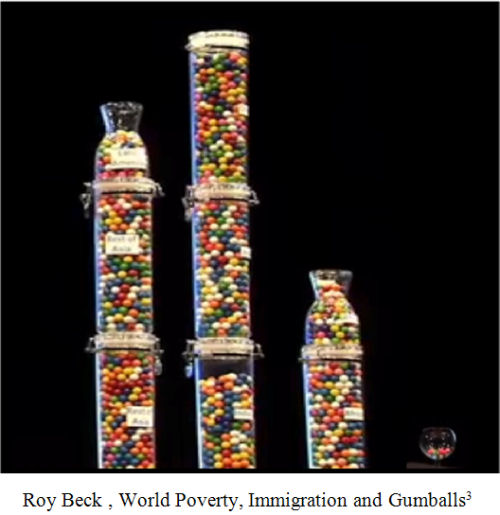

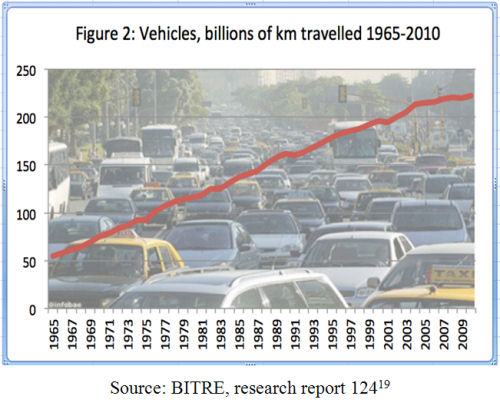
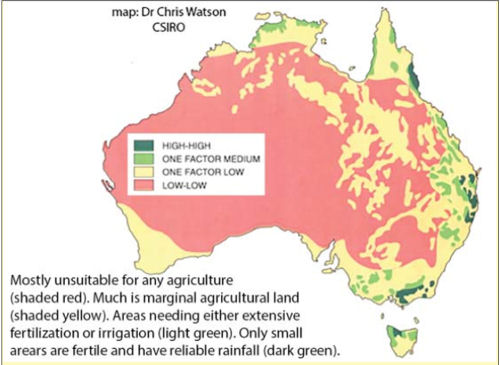
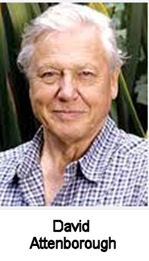




 Dr Valerie Yule describes how our economic system removes our ability to choose what we really want and need.
Dr Valerie Yule describes how our economic system removes our ability to choose what we really want and need.

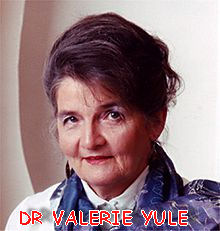
 Population analyst, Brian McGavin, writes about the silent crisis in our midst, of overpopulation. "Today there is a ‘Silent Crisis’ in our midst. The crisis, still largely unrecognised, is potentially greater than all the other problems that transfix our policy makers. For many decades now there has been a willful blindness in recognising that relentless human population growth is one of the pre-eminent problems we face. Rather than providing solutions and leadership, "More and more developed countries offering new ‘baby bonuses’ make it even less likely that we will achieve the lower figures being quoted in the media."
Population analyst, Brian McGavin, writes about the silent crisis in our midst, of overpopulation. "Today there is a ‘Silent Crisis’ in our midst. The crisis, still largely unrecognised, is potentially greater than all the other problems that transfix our policy makers. For many decades now there has been a willful blindness in recognising that relentless human population growth is one of the pre-eminent problems we face. Rather than providing solutions and leadership, "More and more developed countries offering new ‘baby bonuses’ make it even less likely that we will achieve the lower figures being quoted in the media."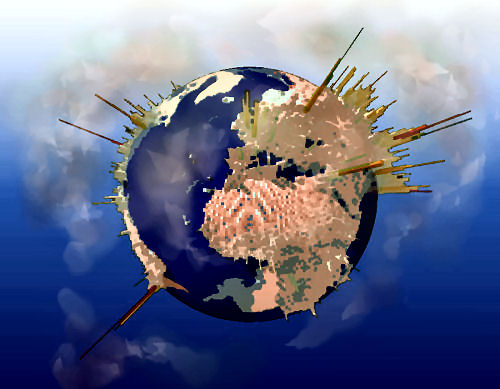
Recent comments